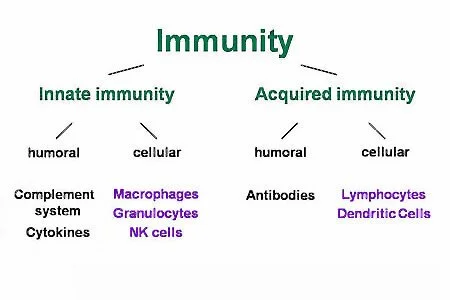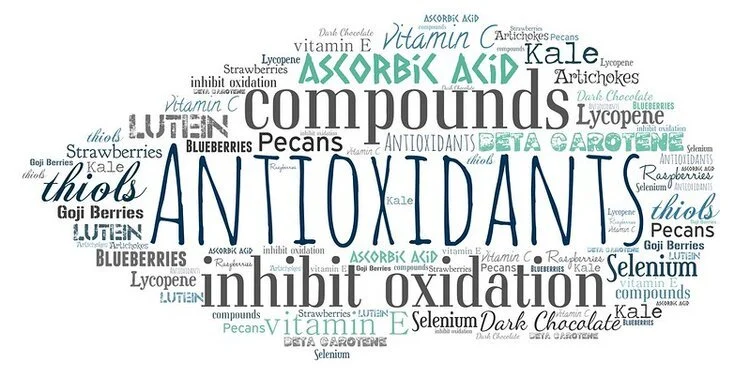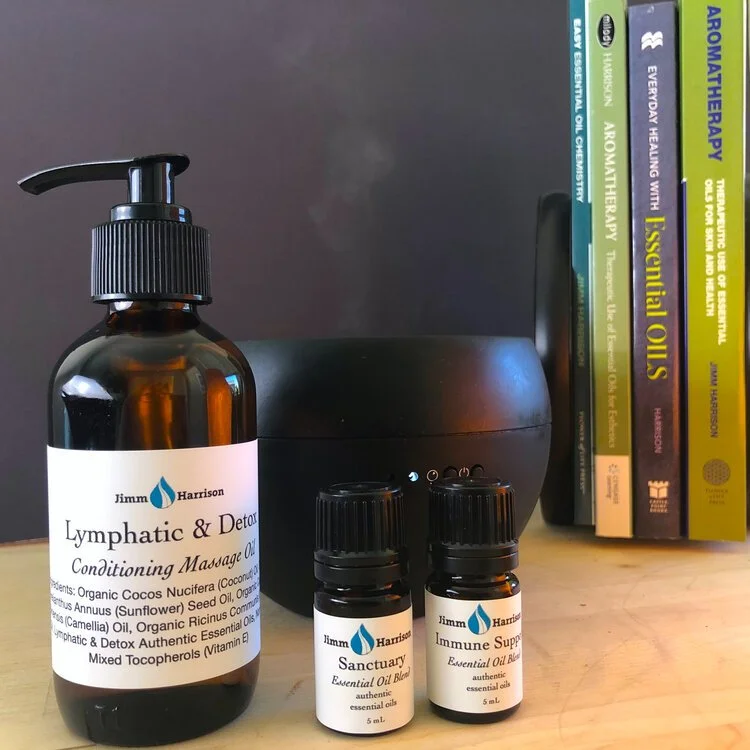5 Essential Oils to Boost Immunity: Or Will They?
The international Covid-19 pandemic has created a heightened concern regarding highly infectious diseases as the world showed itself to be a more interconnected global community and an environment in which viruses and other pathogens can easily and quickly spread. The best solution to build resistance and reduce the risk of infection is to be in a state of healthy mind and body. When dealing with pathogenic disease, the safe and intelligent use of essential oils chosen for known antiviral and antibacterial properties, with consideration of those with support of immunity, accompany a healthy diet and lifestyle. Five immune support and antiviral essential oils are clove (Eugenia caryophyllus), Eucalyptus globulus, frankincense (Boswellia carterii), niaouli (Melaleuca quinquenervia viridilfora), and ginger root (Zingiber officinale).
Let’s sell you some immunity
The desire to “boost immunity” has gained the attention of the public, as well as encouraging the increase in the marketing and sales of health-oriented products. What does it mean to boost or stimulate immunity? Can essential oils boost the immune system? There are several studies that show the effect of essential oils on one or more functions of the immune system. Do these studies legitimately support the use of essential oils to prevent or eliminate infectious diseases through increased immunity? Yes, no, maybe or possibly is the best answer. The truth requires deeper analysis and understanding of how essential oils affect immunity and infection, along with consideration of the unknown and synergistic activities of essential oils in the human body. These synergies include the antimicrobial properties and the influence of the oils on the central and autonomic nervous systems. The complexity of interaction with the immune system simultaneously calls for analysis of essential oil potential to relieve inflammation and protect from reactive oxygen species (free radicals), both elements of an immune response.
innate immunity, which is the immunity you are born with, and acquired immunity that is obtained through contracting the disease
Human immunity
Before launching into how, why and if essential oils boost or support the immune system, let’s do a quick immune system review. The language and descriptions that follow will show up when discussing the relationship between essential oils and immunity.
The main function of the body’s immune system is to prevent, attack, and eliminate pathogenic microorganisms from invading or damaging the body, creating disease. Immunity is separated into two categories, innate immunity, which is the immunity you are born with, including skin and mucous membranes, and acquired immunity that is obtained through contracting the disease or by vaccination (artificial immunity). Acquired immunity is also gained by the transfer of antibodies such as those obtained through the mother at birth.
Immune activty is divided into humoral immunity and cell-mediated immunity. Humoral immunity, coming from the extracellular fluids of the body, involves the release of antibodies, complement proteins, and certain antimicrobial peptides, mainly protecting against extracellular (outside the cell) pathogens and toxins. Cell-mediated immunity, triggering phagocytes, natural killer (NK) cells, T-cells and various cytokines, is responsible for detecting and destroying intracellular (inside the cell) pathogens, such as cells infected with viruses or bacteria.
Immunity and inflammation
The immune system responds with inflammation to pathogenic infection and cellular damage, or when there is physical or chemical injury. The inflammatory response includes vasodilation and increased permeability of blood vessels, allowing immune defensive substances to be released to the injured area and also assist in removing debris that results from the infection or injury. The redness, swelling and heat are the result of the increased blood flow, dilation of arterioles and increased permeability of capillaries.
Acute inflammation occurs at the onset and diminishes following infection or injury. Chronic inflammation is ongoing inflammation and should be addressed for the cause as well as the physical inflammatory condition.
Inflammation is necessary for healing, though “boosting” inflammation is never a factor in treatment. If anything, the inflammatory response needs to be reduced or modulated, helping to ease the discomfort, while still acknowledging inflammation as part of the healing process. Reducing the immune-mediated “cytokine storm” is very advantageous. The cytokines are an
immune response triggering inflammation that may cause severe damage or death, for example the fatal inflammation causing damage and fluid congestion within the lungs due to respiratory viral infection and pneumonia. Essential oils, that include the immunomodulants patchouli, eucalyptus and tea tree, would be beneficial when treating a respiratory cytokine storm.
Ginger reduces inflammation, and inhibits pro-inflammatory cytokines
The studied immunomodulatory effects of ginger (Zingiber officinale) are related to its anti-inflammatory properties. Ginger reduces nitric oxide (Maged, Rizgar, et al 2013), a signaling molecule that plays a key role in the development of inflammation, and inhibits pro-inflammatory cytokines (Tripathi, Sudipta, et al. 2007). Many of the studies for ginger show content having the compounds 6-gingerol and shogaols, which are found in varied amounts in the CO2 extract but not in the essential oil.
Patchouli (Pogostemon cablin), a known anti-inflammatory essential oil, reversed expression of the inflammatory markers, TNF-α, IL-1β, inducible nitric oxide synthase (iNOS) and cyclooxygenase (COX)-2 (Liao, Jb, et al. 2013). Patchouli may be especially beneficial in viral respiratory lung infection with its ability to inhibit the virus (Wu, Huaxing, et al. 2011), and, very importantly, reduce or prevent the respiratory inflammation caused by the cytokine storm (Li, Yu-Cui, et al. 2012).
Antioxidant
The ability to impede oxidation due to free radicals, an antioxidant, is a commonly recognized therapeutic activity of essential oils. Pro-inflammatory cytokines at times of infection or injury, along with various other activity of the immune system involving macrophages, neutrophils, and lymphocytes, release reactive oxygen species (ROS) or free radicals. In this free radical and immunity relationship, the antioxidant properties of essential oils are seen having an immunomodulatory effect (Orhan, Ilkay Erdogan, et al. 2016). Essential oil antioxidant activity supports healthy immune function and healing of the body by-way-of reducing the damage and disruption to the healing process caused by the free radicals.
Essential oil antioxidant activity supports healthy immune function
This truly demonstrates the complexity of interaction between the essential oils, human physiology and the immune system. Antioxidant activity is not generally considered an immune support function of essential oils. Just like the ability of essential oils to directly prevent or eliminate infectious disease, the antioxidant and antimicrobial properties have an indirect support on immunity.
Essential oils and immunity
When reviewing the scientific studies you’ll find that essential oils interact with all facets of immune function, in which way is dependent on the oil or compound used. For instance, clove (Eugenia caryophyllata) is shown to augment the humoral immune response while decreasing cell-mediated immunity (Halder, S., et al., 2011). Frankincense (Boswellia carterii) was shown to be an immunostimulant, increasing the production and ability of lymphocytes to recognize and eliminate pathogens (Botros R., et al., 2014).
Already useful for anti-influenza and expectorant properties, this translates to the potential use of tea tree oil to alleviate the respiratory cytokine storm
Tea tree (Melaleuca alternifolia) exerts its immunomodulatory effects by inhibiting NF-κB signaling activation and levels of cytokine production. (Low, Pauline, et al., 2015). Already useful for anti-influenza and expectorant properties, this translates to the potential use of tea tree oil to alleviate the respiratory cytokine storm, reducing inflammation by-way-of immunomodulation.
The compound 1,8 cineole (eucalyptol) is often documented for immunomodulatory activity, as well as being anti-inflammatory (Juergens, U., et al. 2003; Yadav, N., et al. 2017) and anti-viral. This would suggest an immune modulating use of tea tree, bay laurel (Laurus nobilis), rosemary (Rosmarinus officinalis) chemotype (CT) cineole, and several eucalyptus species.
Niaouli (Melaleuca quinquenervia) is documented in aromatherapy literature as a strong immune-stimulant which has been supported in a study where niaouli essential oil increased cellular immunity (Nam, Sang-Yun, et al. 2008). Niaouli CT 1,8 cineole, would also have the same therapeutic properties as those mentioned for other oils high in this compound. Niaouli CT viridiflorol is recommended for its antiallergic effects. Viridiflorol is noted as an anti-inflammatory and antioxidant compound (Trevizan, Lucas Noboru Fatori, et al., 2016).
Himalayan cedarwood oil (Cedrus deodara) has an inhibitory effect on the humoral and cell-mediated immune responses which suggests its therapeutic use in inflammatory disorders (Shinde, U., et al. 1999). Atlas cedarwood (Cedrus atlantica) has similar composition to the Himalayan cedar and is also a known anti-inflammatory.
More to consider with essential oils for immune support
Using the available information, it would seem that essential oils can be utilized to support or modulate immunity. There is enough evidence, especially shared by clinicians who work with essential oils, to advise their immune support benefit in prevention of pathogenic disease, to overcome immune deficient fatigue, and may be advantageous to those with a weakened immune system or if living in an immune compromising environment (industrial, allergenic, urban, etc.).
Immunity is a complex system and even with evidence supporting essential oil immunostimulant and immunomodulatory effects, there remains a doubt as to what this actually means, expressed by this statement from a Harvard Medical newsletter:
“Scientists don't know, for example, whether an herb that seems to raise the levels of antibodies in the blood is actually doing anything beneficial for overall immunity” (Harvard Health Publishing, 2020). Doubt is shared by some leading essential oil professionals, who would agree or come to similar conclusions with Harvard Health. These doubts use a narrow reductionistic-like frame of reference based on studies using reductionistic methods. Understandable, but lacks the synergistic and holistic perspective necessary when evaluating essential oils.
Like most aspects of essential oils, confirmation from studies, clinical outcomes and shared empirical evidence, provides direction for the use of essential oils. If based on the science available, essential oils are used in a logical, safe and educated manner with a result that could conclude an immune supportive effect, would it matter if the positive outcome was due to a specific interaction with immunity? Let’s say, no! Well-researched logical conclusions and intuition that are based on quality science providing direction on the selection of essential oils will often result in valid satisfactory and positive expected outcomes, whether that outcome can be proven to be due to the studied evidence or not.
Confirmation on how the essential oils actually function when addressing immunity would require inclusion of the holistic, or synergistic, effects received from essential oils. The immunostimulant, immunomodulation, antimicrobial, anti-inflammatory and antioxidant effects combine to give the immune support desired and as discussed here. The stress, anxiety and nervous system balancing properties of essential oils would also need to be considered. And let’s not dismiss the elusive, “placebo-like” response due to olfactory memory and emotional recall. A sports analogy may be suitable here. If the essential oils are playing a defensive role (anti-inflammatory, antioxidant, stress relief, etc.) wouldn’t that allow the offense (antigen, phagocytes, etc.) to be more efficient?
References
Frank W. Fitch, “Cell-Mediated Immunity”, Encyclopedia of Immunology (Second Edition), 1998
Susan Pross, Doris Lefkowitz, “Cell-Mediated Immunity”, in xPharm: The Comprehensive Pharmacology Reference, 2007
Aderem, Alan. “Phagocytosis and the Inflammatory Response.” The Journal of Infectious Diseases, vol. 187 Suppl 2, June 2003, pp. S340–5.
Maged, Rizgar, et al. “Anti-Inflammatory Effects of Zingiber Officinale Roscoe Involve Suppression of Nitric Oxide and Prostaglandin E2 Production.” Zanco Journal of Medical Sciences, vol. 17, no. 1, Apr. 2013, pp. 349–56.
Tripathi, Sudipta, et al. “Effect of 6-Gingerol on Pro-Inflammatory Cytokine Production and Costimulatory Molecule Expression in Murine Peritoneal Macrophages.” Journal of Surgical Research, vol. 138, no. 2, Elsevier Inc, 2007, pp. 209–13.
Carrasco F.R., Schmidt G., Romero A.L., Sartoretto J.L., Caparroz-Assef S.M., Bersani-Amado C.A., Cuman R.K.N. Immunomodulatory activity of Zingiber officinale Roscoe, Salvia officinalis L. and Syzygium aromaticum L. essential oils: Evidence for humor- and cell-mediated responses. J. Pharm. Pharmacol. 2009;61:961–967.
Liao, Jb, et al. “Immunomodulatory Potential of Patchouli Alcohol Isolated from Pogostemon Cablin (Blanco) Benth (Lamiaceae) in Mice.” Tropical Journal of Pharmaceutical Research, vol. 12, no. 4, Aug. 2013, pp. 559–65.
Wu, Huaxing, et al. “Inhibitory Effect and Possible Mechanism of Action of Patchouli Alcohol Against Influenza A (H2N2) Virus.” Molecules (Basel, Switzerland), vol. 16, no. 8, Aug. 2011, pp. 6489–501.
Li, Yu-Cui, et al. “Oral Administration of Patchouli Alcohol Isolated from Pogostemonis Herba Augments Protection Against Influenza Viral Infection in Mice.” International Immunopharmacology, vol. 12, no. 1, Elsevier B.V, 2012, pp. 294–301.
Orhan, Ilkay Erdogan, et al. “Immunomodulatory Properties of Various Natural Compounds and Essential Oils through Modulation of Human Cellular Immune Response.” Industrial Crops & Products, vol. 81, Elsevier B.V, Mar. 2016, pp. 117–22.
Halder S, Mehta AK, Mediratta PK, Sharma KK. “Essential oil of clove (Eugenia caryophyllata) augments the humoral immune response but decreases cell mediated immunity.” Phytother Res. 2011;25(8):1254‐1256.
Dibazar, Shaghayegh, et al. “Clove ( Syzygium Aromaticum ) Ingredients Affect Lymphocyte Subtypes Expansion and Cytokine Profile Responses: An in Vitro Evaluation.” Journal of Food and Drug Analysis, vol. 22, no. 4, Elsevier Limited, July 2014, pp. 448–54.
Botros R. Mikhaei, Galal T. Maatooq, Farid A. Badria and Mohamed M. A. Amer, Chemistry and Immunomodulatory Activity of Frankincense Oil Zeitschrift für Naturforschung C, Jun 2014 , Volume 58: Issue 3-4
Low, Pauline, et al. “Immunomodulatory Activity of Melaleuca Alternifolia Concentrate (MAC): Inhibition of LPS-Induced NF-κB Activation and Cytokine Production in Myeloid Cell Lines.” International Immunopharmacology, vol. 26, no. 1, May 2015, pp. 257–64.
Juergens, U. .., et al. “Anti-Inflammatory Activity of 1.8-Cineol (eucalyptol) in Bronchial Asthma: a Double-Blind Placebo-Controlled Trial.” Respiratory Medicine, vol. 97, no. 3, Elsevier Ltd, 2003, pp. 250–56
Yadav, Niket ; Chandra, Harish; “Suppression of Inflammatory and Infection Responses in Lung Macrophages by Eucalyptus Oil and Its Constituent 1,8-Cineole: Role of Pattern Recognition Receptors TREM-1 and NLRP3, the MAP Kinase Regulator MKP-1, and NF[kappa]B.(Research Article).” PLoS ONE, vol. 12, no. 11, Public Library of Science, Nov. 2017, p. e0188232.
Nam, Sang-Yun, et al. “Essential Oil of Niaouli Preferentially Potentiates Antigen-Specific Cellular Immunity and Cytokine Production by Macrophages.” Immunopharmacology and Immunotoxicology, vol. 30, no. 3, Jan. 2008, pp. 459–74
Trevizan, Lucas Noboru Fatori, et al. “Anti-Inflammatory, Antioxidant and Anti-Mycobacterium Tuberculosis Activity of Viridiflorol: The Major Constituent of Allophylus Edulis (A. St.-Hil., A. Juss. & Cambess.) Radlk.” Journal of Ethnopharmacology, vol. 192, Elsevier B.V, Nov. 2016, pp. 510–15.
Peterfalvi, Agnes, et al. “Much More Than a Pleasant Scent: A Review on Essential Oils Supporting the Immune System.” Molecules, vol. 24, no. 24, MDPI AG, Jan. 2019
Kuriyama H., Watanabe S., Nakaya T., Shigemori I., Kita M., Yoshida N., Masaki D., Tadai T., Ozasa K., Fukui K., et al. Immunological and psychological benefits of aromatherapy massage. Evid. Based Complement. Altern. Med. 2005;2:179–184






